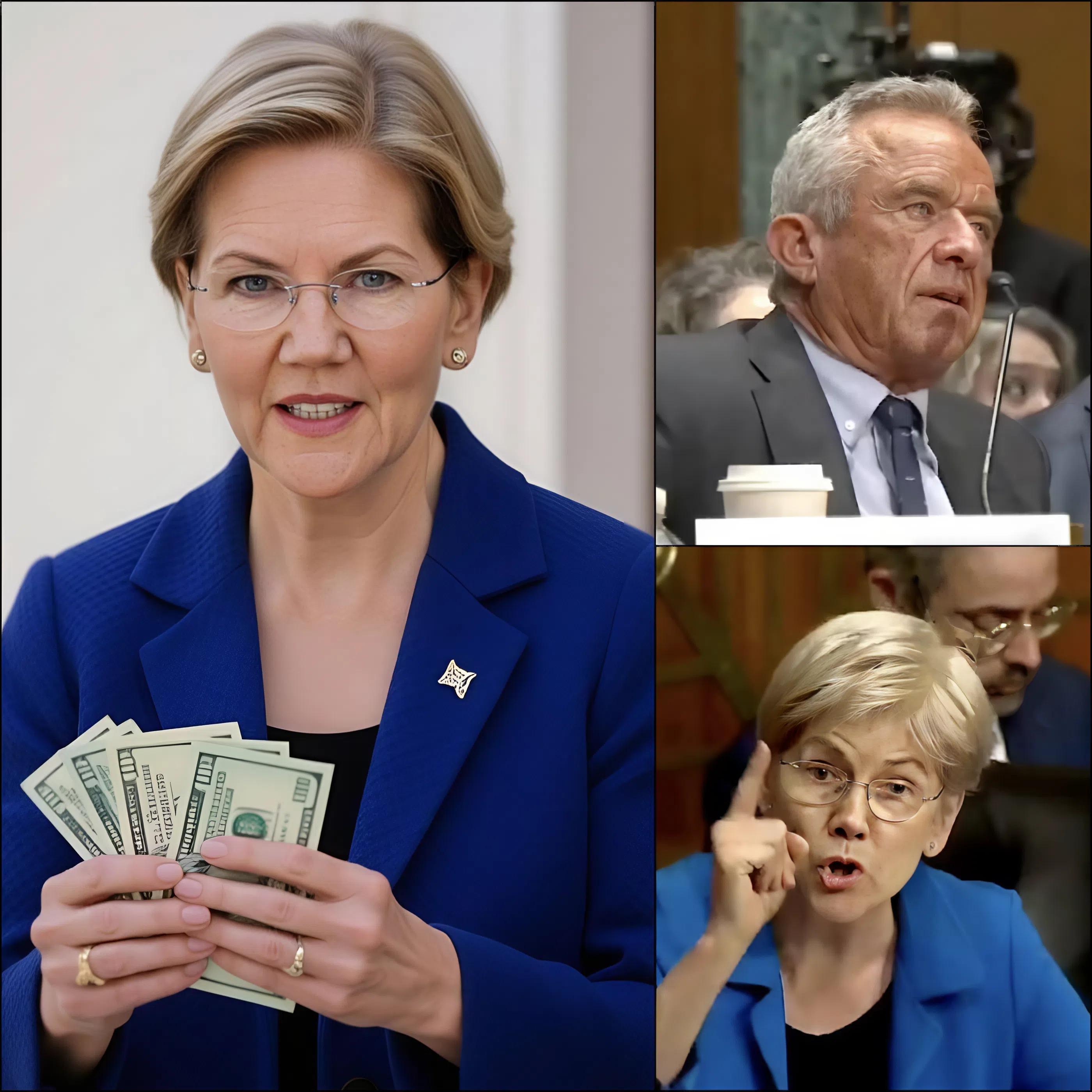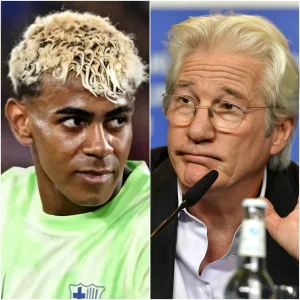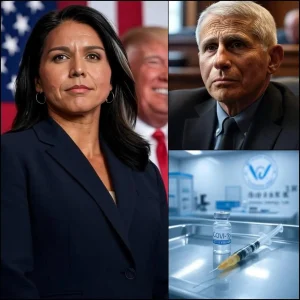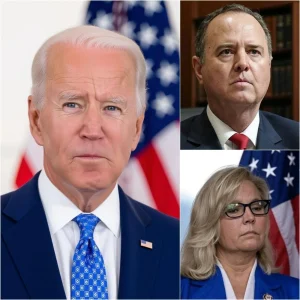RFK Jr.’s Clash with Elizabeth Warren Exposes Tensions Over Big Pharma and Vaccine Policy
In a heated Senate Finance Committee hearing on September 4, 2025, Health and Human Services Secretary Robert F. Kennedy Jr. clashed with Senator Elizabeth Warren (D-MA), accusing her of accepting $855,000 from pharmaceutical companies while criticizing his vaccine policies. The confrontation, reported across major outlets like CNN and The Washington Post, has reignited debates over Big Pharma’s influence, political funding, and the direction of public health policy under the Trump administration. Kennedy’s blunt accusation of hypocrisy, coupled with Warren’s sharp rebuttal, underscores the deep political and ideological divides shaping the nation’s health agenda.

The Senate Showdown
The hearing, convened to discuss President Trump’s 2026 healthcare agenda, quickly turned contentious as Democrats, led by Warren, grilled Kennedy over his controversial tenure as HHS Secretary. Kennedy has drawn widespread criticism for firing CDC Director Susan Monarez, dissolving the CDC’s vaccine advisory panel, and promoting skepticism about COVID-19 vaccines. Warren accused Kennedy of undermining public health by altering vaccine guidelines, claiming his actions effectively restricted access to vaccines and sowed “chaos and corruption” in federal health agencies. “You’re taking vaccines away from Americans,” Warren charged, citing her concerns about Kennedy’s departure from his confirmation promises to support evidence-based policy.
Kennedy fired back, accusing Warren of hypocrisy for criticizing his vaccine skepticism while accepting significant donations from pharmaceutical companies. “I’m not going to recommend a product for which there is no clinical data for that indication,” Kennedy said, referencing his refusal to endorse certain vaccines without what he deems sufficient evidence. He then pointed to Warren’s campaign finances, stating, “You’ve taken $855,000 from Big Pharma, Senator. It’s hypocritical to lecture me when your campaigns are funded by the very industry you claim to regulate.” The figure, sourced from OpenSecrets.org, reflects contributions from pharmaceutical companies to Warren’s campaigns over her career, a point Kennedy used to question her credibility.
Warren, visibly angered, dismissed Kennedy’s accusation as a distraction, arguing that her funding sources do not influence her commitment to public health. “This isn’t about me, Mr. Secretary. It’s about your reckless disregard for science,” she retorted, citing the resignation of over 1,000 HHS employees who protested Kennedy’s leadership on September 3, 2025. The exchange, described by Politico as “electric,” highlighted the personal and political stakes of the debate.
Big Pharma and Political Funding
Kennedy’s accusation taps into a broader critique of Big Pharma’s influence in Washington. The pharmaceutical industry, a major player in political lobbying, spent $375 million on federal campaigns in 2024 alone, according to OpenSecrets.org. Warren, a vocal critic of corporate influence, has faced scrutiny for accepting donations from drug companies, though she argues these funds do not sway her policy positions. Her advocacy for lowering drug prices and expanding Medicare contrasts with Kennedy’s narrative, which paints her as beholden to industry interests.
The clash reflects a growing public distrust of pharmaceutical companies, amplified by Kennedy’s anti-vaccine rhetoric and the Trump administration’s broader skepticism of institutional medicine. Posts on X captured the polarized sentiment, with supporters like @Cernovich praising Kennedy for exposing “Big Pharma’s grip on D.C.,” while critics like @ASFleischman accused him of deflecting from his own “pseudoscientific” policies. The debate over political funding underscores a key tension: while both sides criticize Big Pharma, they differ sharply on how to address its influence.
Public Health Policy Under Scrutiny
Kennedy’s tenure as HHS Secretary has been marked by controversy since his appointment. His decision to fire Monarez and dissolve the CDC’s vaccine advisory panel, coupled with his public skepticism about mRNA vaccines, has drawn bipartisan criticism. Republican Senators Thom Tillis and Bill Cassidy expressed concerns during the hearing, noting that Kennedy’s actions contradicted his confirmation promises to prioritize scientific evidence. Tillis pointed to a 2023 study showing mRNA vaccines reduced COVID-19 mortality by 50% in high-risk groups, challenging Kennedy’s claims about their efficacy.
Democrats, meanwhile, have accused Kennedy of endangering public health. Senator Ron Wyden (D-OR) criticized the administration’s broader health policies, including efforts to restrict gender-affirming care, which Vice President JD Vance recently defended in a separate outburst. Kennedy’s defenders, however, argue that his skepticism reflects a necessary pushback against pharmaceutical overreach. A recent X post by @EricLDaugh lauded Kennedy for “laying out his entire philosophy on the COVID vaccine,” claiming he exposed Democratic ties to Big Pharma.
Broader Implications
The Kennedy-Warren clash highlights the intersection of politics, money, and public health at a critical juncture. With trust in federal health agencies at historic lows—only 34% of Americans trust the CDC, per a 2025 Gallup poll—Kennedy’s rhetoric resonates with a segment of the population skeptical of institutional medicine. However, his policies risk further eroding public confidence in vaccines, which have historically saved millions of lives. The CDC reports that childhood vaccination rates for diseases like measles have dropped 2% since 2020, a trend critics attribute to growing anti-vaccine sentiment.
The controversy also raises questions about the role of political funding in shaping health policy. While Warren’s donations are legal and disclosed, they fuel perceptions of bias, complicating her efforts to critique Kennedy. Conversely, Kennedy’s reliance on anti-Pharma rhetoric risks oversimplifying complex issues, potentially undermining legitimate public health efforts.
Looking Ahead
As the Trump administration pushes forward with its health agenda, the fallout from this hearing will likely intensify scrutiny of Kennedy’s leadership and the broader influence of Big Pharma. The Senate Finance Committee plans to hold follow-up hearings, while legal challenges to Kennedy’s policies, including potential lawsuits from former HHS employees, loom on the horizon. For now, the Kennedy-Warren clash serves as a stark reminder of the deep divisions shaping America’s health policy landscape, with no easy resolution in sight.








